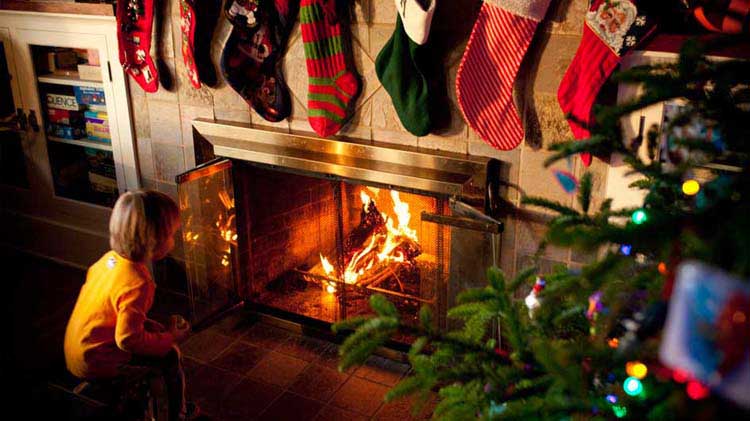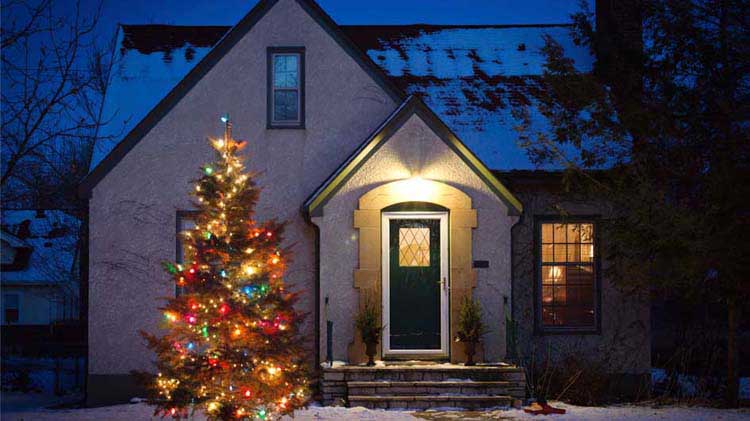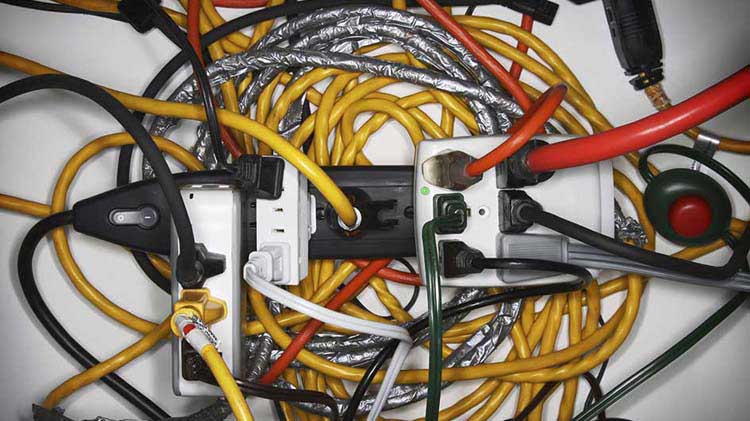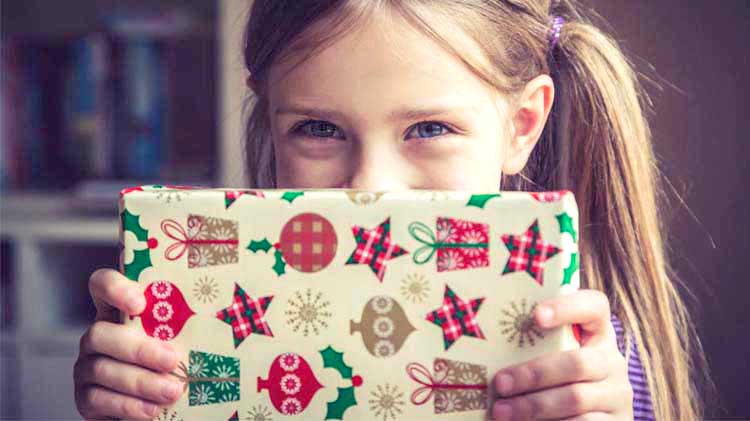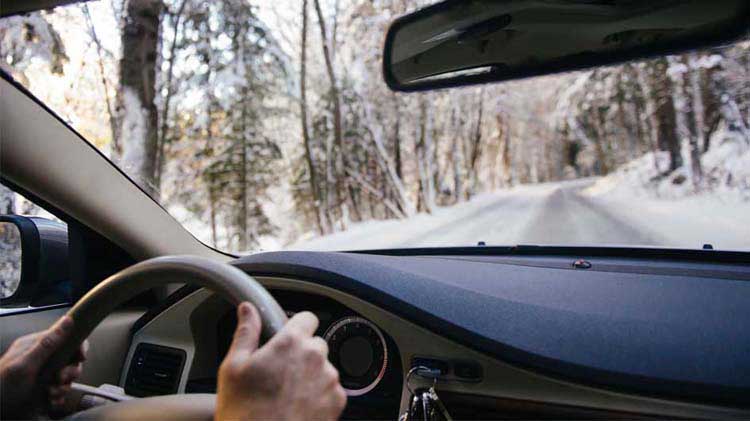Simple holiday safety tips
Tips to help keep your family and home safe for the holidays.
The holidays are a time to reconnect with family and friends, but they also can present seasonal safety hazards. Here are some tips to help you keep your home safe this holiday season.
Holiday decorating safety tips
According to the United States Consumer Product Safety Commission, during the holiday season, there is an average of around 160 decorating related injuries daily — half of those injuries are associated with falls. Here are some tips to help make your holiday decorating safer:
- Never use furniture as a ladder.
- Follow the 1-to-4 rule for extension ladders: for every four feet the ladder rises, move the base out one foot from the structure.
- Always keep three points of contact on the ladder: two hands and one foot, or two feet and one hand.
- Inspect the ladder for any damage prior to using it.
- Use the right ladder for the task at hand.
Electrical safety tips
According to a 2022 report from the National Fire Protection Association (NFPA), between 2016 and 2020 an average of 160 home fires started with Christmas trees every year. Those fires resulted in a yearly average of 2 deaths, 11 injuries and $12 million in damaged property. Here are some tips to consider when handling lights during the holidays:
- Avoid electrical fires by purchasing lights from reputable retailers and only those approved by nationally recognized testing labs like UL, Intertek or CSA. If you are hanging lights outside, remember to use lights made for outdoor use only.
- Inspect both indoor and outdoor lights for broken sockets, frayed wires and loose connections.
- Don't overload outlets with too many electrical devices — this could cause a fire.
Holiday fire safety tips
Being aware of fire safety tips can have a big impact in helping to keep your home safe while you are decorating during the holidays.
Even with all those Christmas tree fires, cooking equipment is the leading cause of home fires and injuries. According to the NFPA, many fires occur on Thanksgiving, Christmas day and Christmas Eve. Here are some things to remember:
- Avoid using candles if possible. Consider using battery-operated ones.
- Mantels are beautiful when covered with stockings and greenery. But these items are flammable. If you use your fireplace frequently, consider hanging these decorations somewhere else.
- Check the Christmas tree — confirm it has plenty of water, if it is a real tree, and it isn't near heat sources.
- If you opt for an artificial tree, get one that is labeled as fire-resistant.
- When cooking, pay close attention to what you're doing and your surroundings.
- Keep a fire extinguisher close by.
- Do not use your fireplace to burn wrapping paper, wreaths or trees.
- Have smoke detectors at least 10 feet from your stove, and test them monthly.
- Turn off decorations and lights when going to bed or when you leave your house.
Holiday shopping safety tips
Extra precautions need to be taken when shopping during the holiday season. Here are a few things to keep in mind:
- Be careful when backing out of parking spaces. It's a good idea to have someone act as a lookout for you, especially if you're parked next to an SUV or van. And watch for other vehicles in the parking lot that might be suddenly backing out of spaces.
- Remember to keep a watch on your children and be on the lookout for small children running behind your car as you leave your space.
- Always park in well-lit areas, and be aware of your surroundings.
- Don't leave purchased gifts in plain view — lock them in your trunk.
- If you drop your holiday gifts that you’ve purchased in your vehicle and don’t plan on leaving just yet, it might be a good idea to move your car. Onlookers may think that you have left the mall, and your vehicle could be less of a target.
- Keep receipts in your wallet or purse. Leaving the receipt in the bag makes it difficult for you to prove your purchase, and easy for thieves to return the items for cash.
- Avoid carrying large amounts of cash.
- Only bring credit cards you plan to use.
- Check your bank statements regularly during the season to spot suspicious activity.
- Practice safety using an ATM to withdraw money for your holiday purchases.
- If you do online shopping, consider buying from trusted websites to avoid confidential data like credit card numbers being stolen.
Holiday travel safety tips
We have a few tips for your holiday travels.
- Avoid aggressive and angry driving.
- Traffic can be heavier than usual around the holidays, so practice driving safety measures like defensive driving, wear your seatbelt, and try to avoid driving distractions and drowsy driving.
- Adjust following distance and speed in snowy or icy conditions.
- A little eggnog might be delicious during the holidays. So be sure to designate a sober driver or arrange for a rideshare service like Uber or Lyft ahead of time if you plan to drink at holiday gatherings.
- During the winter months, an earlier sunset means you've got less daylight to work with. Ideally, plan your trip to avoid driving at night.
- Take the time to winterize your car.
- Cold weather takes its toll on car batteries. Double-check to make sure you've got jumper cables in your trunk. You never know when an easy jump-start could save you time and hassle — or when you could use them to help someone else.
- A winter storm can leave you spending your holiday stuck in a drift or stranded in a blizzard, particularly if you're traveling on unfamiliar roads. Stock your vehicle with items that might be helpful in case of a problem: thick blankets, extra food and water, coats and jackets, a flashlight and a car emergency kit.
- Do not overshare your travel plans on social media, especially if you are planning to be away for some time. This information might be enticing for thieves who may target your home while you are away.
Cooking and dining safety tips
Just a few simple tips to keep the kitchen safer during the holidays include:
- Always have a cook in the kitchen.
- Don't leave stove burners or the oven unattended.
- Follow safety measures if you are frying a turkey.
- Occupy the kids away from the kitchen — too many hot appliances and dangerous utensils.
- Keep prepared foods away from raw meat, poultry, seafood and eggs.
- Cook food thoroughly, using a food thermometer to determine doneness.
- Internal food temperature should be 140 degrees Fahrenheit or above.
- Refrigerate food within two hours at 40 degrees Fahrenheit or below.
- Ditch leftovers after 4 days.
Preventing accidental poisoning and choking
The risk of poisoning also increases during the holiday period, resulting not only from common household items, but also carbon monoxide (CO). Here are more tips:
- Keep your children and pets away from dangerous plants. Mistletoe, holly berries and Jerusalem cherries can be poisonous if consumed in large amounts.
- Those small button batteries found in toys, remotes and the like, are VERY dangerous, if swallowed, so keep them away from children.
- Tiny magnets are also dangerous if swallowed.
- Avoid small or breakable ornaments on lower branches of the Christmas tree to prevent small children from getting hurt or choking.
- If you are gifting toys, take a look at age guidance, especially toys for small children. Toys with very small parts may become choking hazards.
- Consider safety gear for gifts like bicycles and scooters.
- Install safe and certified carbon monoxide detectors.
Now that you have read some safety holiday tips, you may be interested in learning about how to use electric blankets safely, how to prepare your house for extreme winter weather or ideas to save during the holidays.
